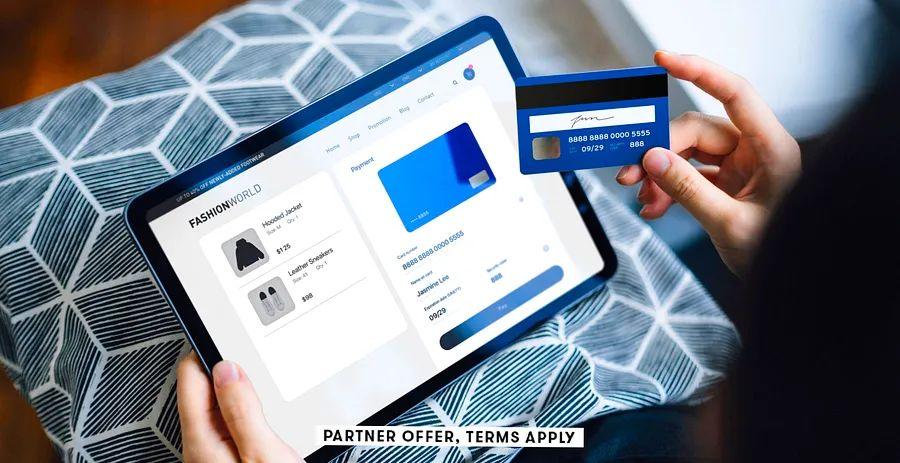Is it okay to charge personal purchases on a business credit card?

We often recommend that small-business owners get a dedicated business credit card to clearly separate their personal and business expenses.
Because business expenses are usually tax-deductible, keeping a distinct line between personal and business spending simplifies things during tax season—especially if the IRS ever audits your finances.
That said, accidents happen. You might mistakenly use your business card for a personal purchase or decide to extend a business trip into a vacation, even after booking flights and a hotel on the business card.
Sign up for our daily newsletter to receive updates on exclusive offers and compare the top credit card picks from our editors.
What you need to know about using business cards for personal expenses.
Is it against the law to use a business credit card for personal purchases?
Using a business credit card for personal expenses isn't illegal, but it’s generally not advisable. Many credit card issuers prohibit small-business owners from charging personal expenses to their business cards. Doing so could violate the terms of your card agreement and lead to consequences.
What are the repercussions of charging personal expenses to a business card?
In addition to the hassle of sorting personal charges from your business expenses, there are potential penalties. Your issuer may close your account if it detects charges that clearly aren’t business-related, and if that happens, you might lose any rewards you’ve earned, such as points, miles, or cash back.
 YOUNGOLDMAN/GETTY IMAGES
YOUNGOLDMAN/GETTY IMAGESAlthough there's no evidence this is a common practice, all major business credit card issuers caution against using your business card for personal expenses. They explicitly require cardholders to agree to using the card exclusively for business purposes.
Here are some examples of this language from a couple of well-known business credit cards:
- Capital One Spark Cash Plus — You "acknowledge and agree that all cards will be used solely for business or commercial purposes, and not for personal, family, or household expenses."
- Ink Business Preferred® Credit Card — "By becoming a Visa Business Card cardholder, you agree to use the card exclusively for business purposes and acknowledge that it is issued to a public or private company, including sole proprietors, employees, or contractors."
A few years ago, Chase even sent out a notice to some of its business cardholders:
Dear Chase Online Customer:
Thank you for choosing your Chase business credit card. Please continue using it for business-related expenses, but be mindful that it is not meant for personal use.
The rules governing business cards do not offer the same protections as those provided to consumer cards. We want to ensure you enjoy the same consumer rights you're entitled to. Therefore, for any personal, family, or household purchases, please use a consumer credit card instead.
Additionally, in early 2023, Chase began including this message in the statements for their business cards:
IMPORTANT UPDATE
Your account is designated as a business account, intended solely for business-related transactions. It should not be used for personal, family, or household purchases.
It's worth noting that credit card issuers find it difficult to determine whether a purchase is for personal or business use, which may explain why this rule is seldom enforced.
For instance, is the dinner you just charged for a romantic date or a business dinner? Is that new laptop for personal use, or is it essential for your business? Even tickets to a concert or sporting event might be for entertaining clients.
Are there any advantages to putting personal expenses on a business card?
You might consider charging more than just business expenses to your business credit card to improve your personal credit score. Since many — though not all — business credit cards report only to business credit bureaus, this spending won't affect your personal credit. This can help keep your credit utilization ratio low and your credit score high.
 MASKOT/GETTY IMAGES
MASKOT/GETTY IMAGESHowever, business credit cards typically come with fewer consumer protections, along with higher interest rates and fees. In fact, many of the consumer safeguards provided under the Credit Card Act of 2009 do not apply to business cards.
Although issuers have voluntarily extended certain protections, a bill proposed in Congress in 2018 aimed to:
- Prevent issuers from raising interest rates on small businesses without adequate notice
- Ban interest rate hikes on existing balances
- Stop interest charges on debt that is paid on time
- Ensure that any payments exceeding the minimum would go toward the highest-interest balance first
Sadly, that bill never received a vote in Congress.
If you pay off your balance in full and on time each month, the proposed protections may not be particularly relevant to you, as they primarily target cardholders who carry a balance. This also means that the risk of using your business card for some personal expenses is relatively low.
However, keep in mind that you could lose certain benefits provided by your business card if you use it for personal purchases. For instance, Chase offers primary auto rental insurance when using the Ink Business Preferred card for business trips, but this coverage is downgraded if the car rental is for personal use:
When renting within your country of residence for personal reasons, the Auto Rental CDW becomes secondary coverage, meaning it only supplements and applies after any other valid insurance or reimbursement you might have.
Bottom line
In general, regularly using your business credit card for personal expenses is not the best idea due to the associated risks.
It's important to keep in mind that mixing personal and business expenses could harm both your personal and business credit if you run into financial trouble. That said, if you make an occasional mistake and charge a personal expense to your business card, the consequences are likely to be minimal.

1

2

3

4

5
Evaluation :
5/5